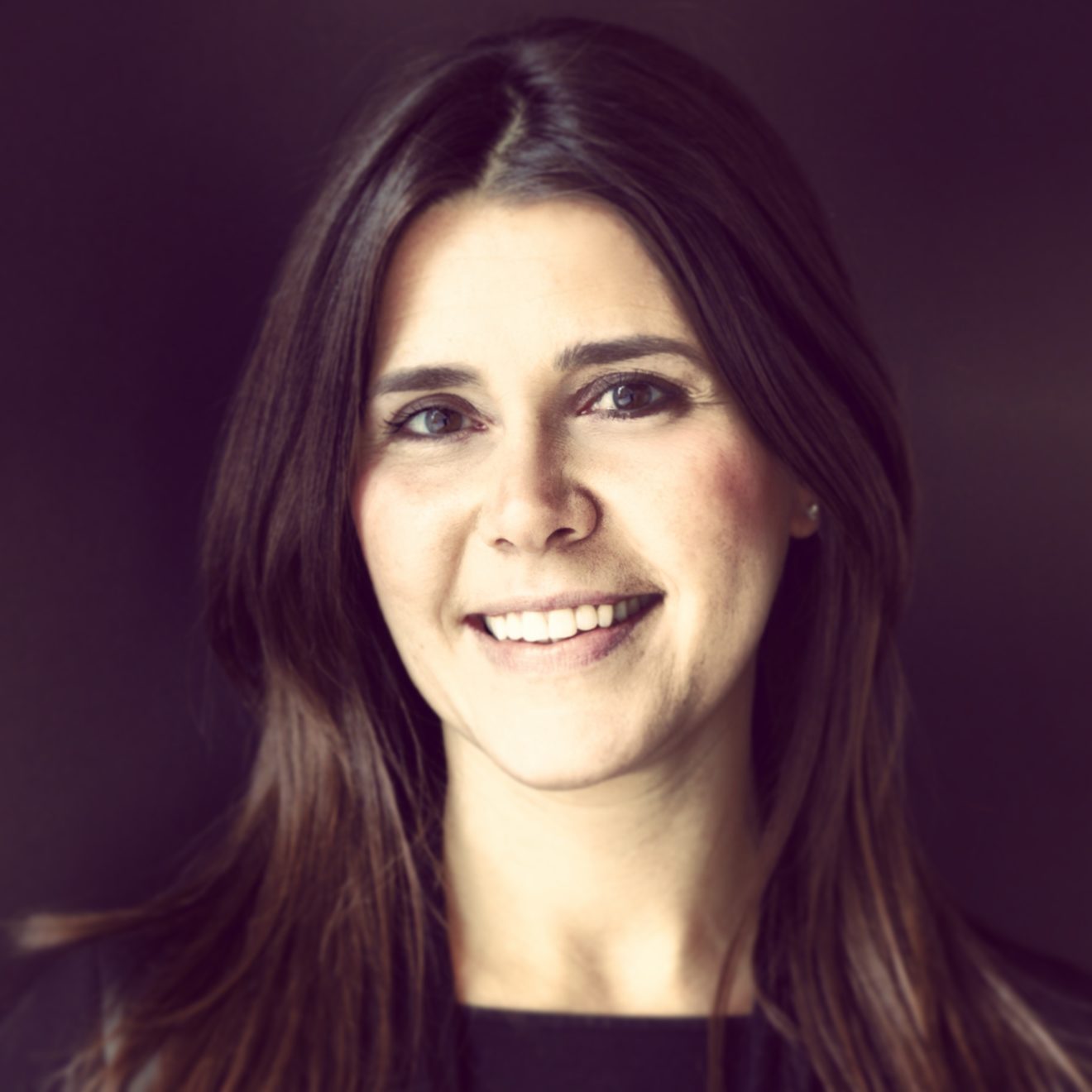Bianca Olson, SVP Corporate Affairs, Houghton Mifflin Harcourt
Bianca is one of the original girl bosses in my professional life. We worked together in the PR agency world and I always admired her friendly yet authoritative demeanor and serious style from afar (not true, we sat 20 feet from each other). Being in close physical proximity meant I, bright-eyed and fresh out of undergrad, picked up on most interactions and as a result, invaluable teaching moments.
Today, Bianca is Senior Vice President, Corporate Affairs at Houghton Mifflin Harcourt, a learning company that serves 50 million students and 3 million teachers in 150 countries, and is home to brands like Carmen San Diego* and Curious George. We caught up in downtown Boston; this interview was condensed and edited for clarity.
*As a kid, I was OBSESSED with the Carmen San Diego computer game – when Bianca mentioned it, a light bulb went off. Seems I have the trench coat-clad character to thank for seeding my passion for travel at an early age.
Catching Up
Bianca, we worked together a decade ago and while you look exactly the same, I know a lot has changed. As a new mom, how are you adapting at work?
Becoming a mom when you’re more senior in your career has its pros and cons. By this stage, you’re pretty set in your ways, and have a certain schedule and way of getting things done. It took time for my husband and I to have our son – who is almost two years old now – and like any new parent, I want to spend as much time with him as possible. Seeing him before he goes to bed means leaving the office at 5pm. I used to have that time after hours to get things done; now, I’ve adjusted by coming in early and using that as my quiet, productive time. I would say I’m able to do more in less time now, though my husband would disagree with the “less time” part!
You were always efficient. Are you more disciplined now about only working on high value needs?
I try to be strategic about where I spend my time but the small things matter. I’ve talked to some people who say now that they have kids, they’re all business at the office – no small talk so they can do their job and leave. That’s just not me – it sounds terrible! While a good percentage of the organization is remote, most of my team is here in Boston, which I love. I oversee corporate affairs, which includes internal comms, external comms, corporate social responsibility, national events and sponsorships and our history initiatives so I view all of our work as incredibly high value. I love my team and what we do, and I believe that personal relationships are part of what make us effective in our jobs. Plus, we spend too much time at work not to have fun while we’re there.
Early Influences & Leadership Style
We’re very similar, both detail-oriented. How have you learned to relinquish control as you’ve risen through the ranks?
In communications, everything we do is visible, both internally and externally. With 4,000 employees, when something isn’t perfect, we hear about it – especially in a company and culture that values the written word. Part of being able to give up control is trusting the people you work with – that means hiring people who value the same things, like great writing and a similar obsession with details. All you can do is make sure you have the right team in place and create a culture of high standards. I’ve always believed that when you hand something off internally, it should be “client-ready” – that sentiment has carried over from my agency days.
I recently read: “Great bosses change us for the better. They see more in us than we see in ourselves, and they help us learn to see it too” (read more here). Who was one of your earliest professional influences?
I absolutely think that’s critical – a good leader trusts their team and helps them take on more than they thought they could. I’ve definitely benefited from that when I think about the great, early bosses I’ve had. My first boss in the agency world really instilled a sense of accountability from day one. He coached me to understand that even as the most junior person on the team, I was responsible for very important things. I still find myself doing things today that I picked up from those days – things as small as writing “AI” in my notebook when something is an “action item” to ensure it stands out. He taught me regardless of your position within the team or organization, you have to be highly accountable.
Such accountability probably helped shape your early professional successes. As a young manager, how did you try to develop your leadership style while still learning to lead yourself? What about situations where you’ve become a boss to a peer or someone who may have more experience than you?
I think relatability, empathy and kindness – all of those things – are important leadership skills. When becoming a manager of a peer or someone with more tenure, it helps to view yourself as a coach vs. a “manager.” A coach wants to make people feel supported in their work and empower them to do their best. When people view you as a supporter and a partner, age or experience is less of an issue.
Was there ever a point where you sat down and pointedly asked yourself: “what is my leadership style?”
Actually, yes. About 6 years ago, my manager at the time said to me: “you’re at the stage in your career where you need to think about what type of leader you want to be.” Until that point, I had focused on working hard, doing my best, being a good person and treating others with kindness and respect, and found if I did those things, I could be successful. But as you progress, sometimes those things aren’t enough and you need to be more intentional. I took a step back and looked at others who I thought were great leaders and who I wanted to emulate. And just as helpful, I thought about what I didn’t want to emulate. Sometimes you encounter people with a style you know is not the way you want to lead. In those cases, I tell myself “take a mental note right now & make sure you’re not doing that.” Those are valuable moments.
Intention is key so you can actively vs. passively become a certain type of leader. I recently attended a leadership seminar with the philosophy that there’s no set of inherent traits that inherently make a leader; if there were, people would see they’re missing certain characteristics and automatically screen themselves out as a good leader. So, the concept was that leadership is not determined by a set of qualities, but rather being an authentic listener. How would you respond to this?
I think that authentic listening is a leadership quality in itself, and there are certain traits that accompany it. Authentic listeners are present, they care and are genuinely interested. Those are all important qualities. But listening can’t stand alone; there has to be another side – things like decisiveness and the ability to put forth a vision, for instance.
Leaders must lead. I’ll never forget a time I was struggling at the office. A manager pulled me aside and stated he could tell something was going on that was impacting my work. He knew the quality of my work was of the utmost importance to me and no questions asked, told me to take a few days off to reset. He was kind, caring & direct.
That’s amazing. Great leaders care about their teams as people. We use Gallup for employee engagement benchmarking and they have a very prescriptive, twelve question methodology. Q10 asks: “do you have a best friend at work?”. It’s the first year the question’s been asked and everyone is talking about it. It made its way onto the list because after years of conducting the poll, Gallup saw that it was a critical factor in workplace engagement. It’s not necessarily about having a ‘best friend,’ but instead what lies beneath that – a certain level of closeness with people you work with. According to Gallup, at the end of the day, the best predictor of employee engagement is the people you work with.
Evolution
There’s clearly a thread of kindness and inclusiveness throughout our discussion. You must’ve learned these traits at a young age and then carried them into the workplace. On a personal level, who’s impacted you the most?
My mom is the most empathetic person I know, so I grew up learning to look at things from others’ perspectives. That’s been critical at work. Today, my husband continues to teach me things, like how important it is to stop talking sometimes, to say less. Have you seen those little cards at Paper Source? They’re intended as jokes to give out at cocktail parties, and some say “stop talking.” I bought them for Matt to give to me. He communicates very well with fewer words.
Ha! The older I get, I’m more and more impressed by people who are concise and crystal clear.
Yes! He’ll often say “I’m already sold, you don’t need to keep proving your point!” I think that’s a valuable lesson to carry over into my professional life and I try to remember it. You need to know when to stop selling.
This goes back to authentic listening. Many of us listen to react, be it to agree or disagree or to comment. Earlier you mentioned your approach to managing people at different levels. Conventional wisdom tells us as a leader, you can’t have all “A” players. How do you maximize “B” and “C” players’ contributions?
Interesting. Another question on the Gallup survey, Q3, asks whether people have the opportunity to do their best work every day. It’s about making sure the right people are in the right roles – identifying what people are motivated by and best at to help gauge where they’ll be most effective and most engaged. At the end of the day, people want their work to have an impact. HMH is in a double bottom line business so our work has a positive impact on society – that drives passion and meaning for a lot of people, but as a leader you also need to help make sure people are in roles where they can apply their talents. On the flip side, sometimes you need to acknowledge when the right role for someone may not be on your team or even within the company, and while it can be hard, you have to be honest about that.
It’s about getting someone to do their best work. Okay last question, and shifting gears a bit. You’ve always been very authentically you. How do you ensure your personal style doesn’t overshadow substance?
Individuality has worked for me. Of course knowing your audience is key – you need to be able to read the room – but if your personality plays to what you’re doing, it’s often welcome. I’m recalling a local event where some folks had a negative reaction to a speaker who was a senior-level female executive in the Boston business community because she didn’t come across as overly serious. I had the opposite reaction because I appreciated how genuine she was. She wasn’t trying to be too corporate or overly polished and she got to where she was because of that, or possibly despite that. To me, that’s refreshing and deserves respect.
Personality is what differentiates us.
Yes, and starting out in a predominantly female environment on the agency side, I don’t think I ever felt like I had to suppress my personality. It was never a male / female thing, but more about being in a supportive environment that values creativity. This reminds me of a book HMH published last year called “The Myth of the Nice Girl,” by Fran Hauser. Her premise is that women don’t have to sacrifice their values or hide their authentic selves to be successful. I’ve always challenged the notion that warmth and kindness are characteristics women should avoid; in fact, I think they’re what makes us such effective leaders. It’s like the Maya Angelou quote: “People will forget what you said, people will forget what you did, but people will never forget how you made them feel.” For me, that’s what great leadership is about.
More on kindness & leadership?
Want more? This is our first interview, but other content is live:




